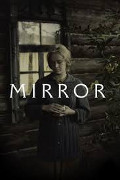
Directed by
Andrei Tarkovsky
108 minutes
Rated M
Reviewed by
Bernard Hemingway


Mirror
Andrei Tarkovsky’s highly personal recollection of his childhood during the Second World War uses film as a dreamscape rather than a plot-driven narrative. With its extraordinary imagery it is a visually stunning film although as with dreams, when trying to address its images in terms of conventional narrative logic they tend to dissolve into loosely connected impressions.
The film centres on two characters, Maroussia (Margarita Terekhova) and Ignat (Ignat Daniltsev), who embody the director’s mother and ex-wife (i.e. two different characters) and the twelve year old Tarkovsky and, twenty years later, his son, Alexii. This much we can discern even if they appear in disjunctive time frames and different locations in a series of episodes some of which recur and which are inter-cut with archival footage which moves forward in time from the Spanish Civil War to the Second World War and then the period of Mao’s cultural revolution. Added to this are scenes such as the one involving a unidentified woman who gets Ignat to read aloud a letter written in 1836 by Pushkin. Almost needless to say, the film switches between colour and black and white and makes extensive use of its soundscape to add to the overall non-linear experience
The result is a remarkable film albeit one which, like art cinema classics such as Last Year At Marienbad (1962), falls well outside the parameters of commercial cinema.
FYI: Tarkovsky includes some fleeting images of his mother, Maria Vishnyakova, as well as his second wife, Larisa Tarkovskaya, and the voice of his father, Arseny Tarkovsky, reading some of poems as well as briefly appearing himself near the end of the film, lying on a bed and holding an injured bird in his hand.
Want something different?





